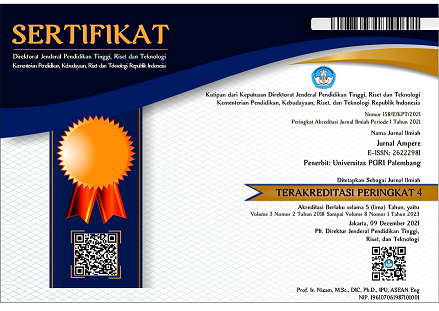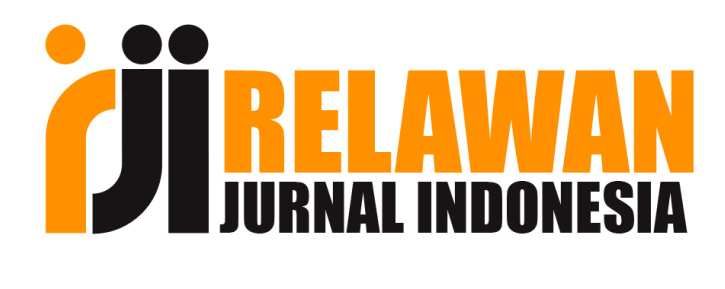RASPBERRY PI PADA SISTEM MONITORING MINI PHOTOVOLTAIC
DOI:
https://doi.org/10.31851/ampere.v6i2.7168Keywords:
Raspberry, voltage sensor, thevenin, Photovoltaic, Battery Management System (BMS), rechargeable battery, monitoring systemAbstract
Renewable energy as an alternative source of energy other than fossil fuels is currently increasingly being used, one of which is electrical energy produced through solar cells. A number of new installations in industry and companies, street lighting systems, and applications on a household scale as an effort to balance the use of fossil energy continue to be developed. The use of solar cells is not without reason, especially in the area of Indonesia that gets sun exposure almost all year round considering Indonesia's geographical condition which is right on the equator so that it adds value to the stability and consistency of the energy production produced. By implementing a real-time monitoring system on solar cell panels, users can monitor the resulting voltage data. In this prototype, using multi photovoltaic cells, each with a capacity of 1Wp, using a number of sensors to read the voltage in each cell, and the controller using the Raspberry platform which has a 32-bit processor capability so that it is expected that data processing can be carried out. better and faster than the controller in general. The sensor used to read the current is a voltage sensor with thevenin concept. The other devices consist of a raspberry as the main control system, a Battery Management System (BMS), a rechargeable battery, and an LCD data display. The expected result in this study is that users can monitor the results of electrical energy production in real time through monitoring the LCD display so that solar cell production can be managed more optimally than standard installations in general.
Downloads
Published
How to Cite
Issue
Section
License

Jurnal Ampere is licensed under a Creative Commons Attribution-ShareAlike 4.0 International License.
Authors who publish with this journal agree to the following terms:
- Authors retain copyright and grant the journal right of first publication with the work simultaneously licensed under a Creative Commons Attribution License that allows others to share the work with an acknowledgement of the work's authorship and initial publication in this journal.
- Authors are able to enter into separate, additional contractual arrangements for the non-exclusive distribution of the journal's published version of the work (e.g., post it to an institutional repository or publish it in a book), with an acknowledgement of its initial publication in this journal.
- Authors are permitted and encouraged to post their work online (e.g., in institutional repositories or on their website) prior to and during the submission process, as it can lead to productive exchanges, as well as earlier and greater citation of published work.






